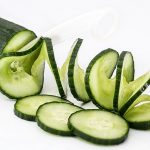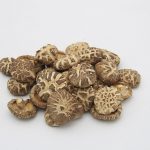10 Reasons To Grow This Common Herb
Mouth ulcers, skin inflammation, indigestion, blood sugar problems, allergies, menstrual issues, high cholesterol, eye problems, and diarrhea all have something in common, and it’s not just that they’re things that you don’t want to have.
These are all problems that can be treated with an herb known as coriander, which is also known as cilantro and dhania. It’s primary function is as a garnish because the odor it gives off helps to embellish the scent of the dish it is accompanying, and it’s delicate leaves instantly boosts the aesthetic value of whatever it’s on.
At the end of the night, most of the coriander ends up in the garbage with the unwanted or inedible food scraps. Most people don’t even question tossing it to the side, but this little herb has a lot more to give than its good looks, which is why we have gathered 10 reasons you need to stop throwing out coriander.
1. Anti-Inflammatory
One of the essential oils in coriander is cineole. This essential oil combined with linoleic acid (which is also found in coriander) are both anti-arthritic and anti-rheumatic, especially when you are experiencing skin inflammation. In addition to helping to ease the discomfort that comes with inflammation, these essential oils found in coriander can also improve the overall appearance of your skin.
2. Lower Blood Pressure
Studies have shown that coriander can help lower blood pressure in those who are suffering from hypertension. This means that it can also help reduce the risk of strokes, heart attacks, and other problems that come with high blood pressure.
This is because of the calcium ions that are found in coriander. They interact with cholinergic, a neurotransmitter that is also called acetylcholine which is found in the nervous system. When the calcium ions and cholinergic react, it causes a calming reaction in the rest of your body which lowers your blood pressure.
3. Improved Digestion
In addition to cholinergic, there are several other neurotransmitters that are stimulated by the minerals that are found in coriander. These released neurotransmitters then continue to move through the digestive system and are calming to your digestive tract. Coriander has been found to help with indigestion and nausea. In fact, the smell of coriander alone can help with nausea and some eating disorders are improved by coriander.
4. Diarrhea
Two of the essential oils in coriander address this particular issue specifically: linalool and borneol. They help improve liver function which helps to ensure proper digestion, and they help bonding occur in the bowels which can ease the effects of diarrhea by making sure everything is moving the way it is supposed to.
5. Ease of Menstruation Issues
Coriander can help to regulate hormones because it is a natural stimulant for the endocrine gland. So, if you are a woman that is having a particularly rough time, try adding some coriander which can regulate your hormones and decrease the severity of your monthly symptoms. When taken regularly, it will not only help decrease your discomfort, but it can also make your cycles more regular.
6. Mouth Ulcers
Prior to the invention of toothpaste, people used coriander to kill bad breath, and to help prevent tooth decay. This is because coriander contains the essential oil citronellol which is both an antiseptic and antimicrobial. In addition to speeding up the healing of mouth ulcers and other painful mouth issues, it can help eliminate the bacteria that cause tooth decay and bad breath.
7. Anti-Histamine
If you have any type of allergy, coriander is a great herb to have on hand because of its outstanding anti-histamine properties. During hay fever season, if taken regularly, it can actually prevent allergic reactions. It can also help reduce reactions to any number of allergens from everything including plants, bugs, and foods.
8. Salmonella Prevention
Although there are some that believe that eating raw cookie dough will inevitably cause salmonella, the truth is that there are a number of things that cause this dangerous and potentially fatal illness. Anything that you can do to prevent contracting it is well worth your effort, and coriander is one preventative measure that you can take.
Coriander contains a compound called dodecenal which is a powerful antibiotic, particularly in the treatment of salmonella. It has actually been found to be about twice as strong as any pill that the doctor can prescribe for salmonella. By regularly eating coriander, you can help yourself avoid this deadly disease.
9. Improved Bone Health
It is a well known fact that calcium is an important mineral for your bones. What is not as well known is that coriander is an excellent source of calcium. In addition to calcium, there are several other essential nutrients that help promote healthy bones. It is good for growing children, adults that want to strengthen bones, and elderly people who need to prevent and treat osteoporosis.
10. Better Eye Care
Some of the most important nutrients for your eyes include vitamin A (beta-carorene), vitamin C, and phosphorus. Coriander contains all of these, as well as antioxidants which help to heal and prevent eye strain and prevent various eye disorders like conjunctivitis and macular degeneration. Vitamin A with calcium (both are in its leaves) have high potential to reverse the effects of macular degradation.
If you want to take better care of your eyes, coriander is a great way to do that.
How can an herb as soft and simple as coriander possibly contain so many health-benefiting factors? It’s almost unimaginable, especially considering the fact that the list of benefits only continues on and on from there. I guess it just goes to show how powerful, yet intricate Mother Nature can truly be.
How Can You Use It?
Coriander can become an additive to many common meals that you probably already have on a semi-frequent basis.
- Add it in its spice form to your soups and broths.
- Include it in your salsa when you’re either mixing up some of your own or pouring some out to snack on that’s already been made.
- Use it to top off some of your favorite salads.
- Add it to pancake or waffle mix to give it a bit more flavor.
- Keep it as a topper on fish or chicken (just be sure not to shove it to the side!).
Keeping coriander in your diet is an awesome way to give yourself a protective, healthful boost during these times of GMO-infested harvests and poisoned foods lining the grocery shelves. With all that those little clusters of leaves contain, coriander really does have something great to offer for nearly every part of your body.
So, the next time you see those familiar leaves decorating the top of your meal, smile and know that a truly wonderful gift of nature has been graciously placed before you to partake of.
Know any other ways you can implement coriander into your diet or daily life in general? Feel free to share with us in the comments below!
Source: FitLife.tv


















